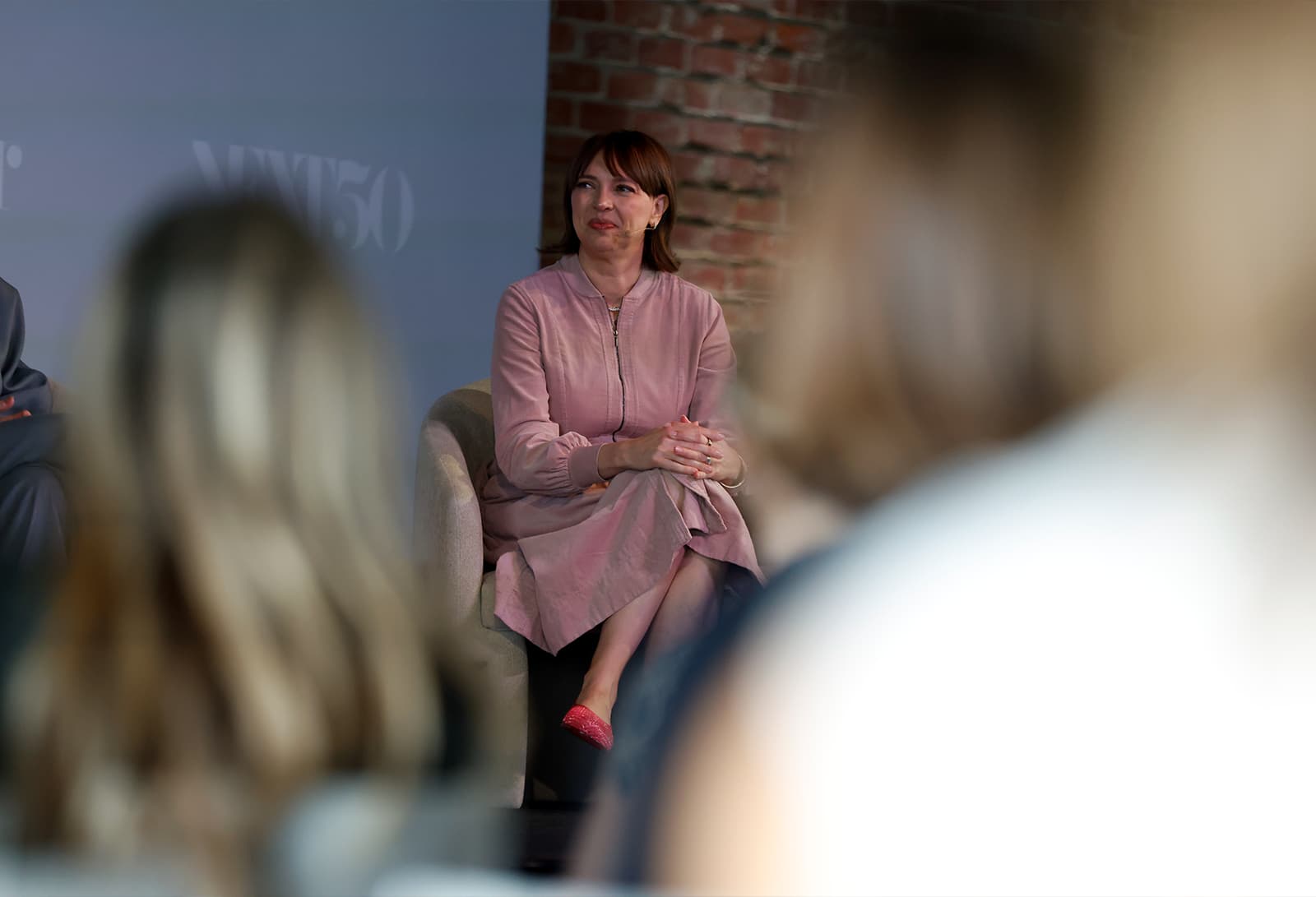Key Takeaways:
At the BeautyMatter NEXT50 Summit in LA, Senior Editor Janna Mandell led a candid conversation with Carolyn Bojanowski, EVP of Merchandising at Sephora; Charlotte Palermino, co-founder and Chief Brand Officer of Dieux; and Nikki DeRoest, co-founder and CEO of ciele. The panel drew back the curtain on what it takes to build, scale, and sustain a brand that can not only make it onto Sephora shelves but thrive there.
“Before a single product is formulated, before the packaging is designed, a founder has a vision,” Mandell opened. “For many founders, that daydream is seeing your products in an endcap at Sephora, but how do you actually get there?”
The Spark That Catches Sephora’s Eye
Bojanowski described the elusive “secret sauce” behind brands that make it to the coveted Sephora shelves as undefinable yet very apparent. “It’s a lot of things you can’t put on a list. It's that merchant gut, that special feeling that this [founder] is the right person, the right product, the right moment.”
That intuition leads to a deep partnership once a brand comes on board. “We’re not buyers, we're merchandisers,” Bojanowski explained. “Your merchant is somebody who feels like they’re part of the brand, part of the journey. We talk about everything, from who you should hire to where to eat in San Francisco. It’s all in.”
Partnership over Power Struggles
DeRoest and Palermino spoke to a common misconception: Launching at Sephora means losing control of your brand. Palermino explained that among brand leaders, Sephora can sometimes have a reputation of being pushy. “Ultimately, [Sephora’s] business is building brands. If you don't have a strong point of view, then yeah, you may get bulldozed. But if you come into the relationship knowing your values and what makes your brands special, it's like any partnership: you talk, you grow.”
For DeRoest, who launched ciele exclusively with Sephora in 2023, the relationship was love at second sight. After an earlier stint with her first brand, RÓEN Beauty, DeRoest came into her second venture wiser and more strategic. “Sephora gives you credibility automatically, but that doesn’t mean just because you’re in, you’re in,” she said. “It’s work. My merchants and I talk every week. We make decisions together. It feels like they see ciele as their brand too.”
Learning to Grow Up, Fast
Palermino, whose Dieux debuted in 700 Sephora doors after building an eight-figure DTC business, credits the retailer with helping her scale operationally. “This disorganization in our own unit was where Sephora forced us to grow up,” she admitted. “You can’t push a launch by a week like in DTC. Sephora really helped us focus our vision, our structure, and even our hiring. It wasn’t tension, it was transformation.”
This clarity led Palermino to one of her boldest moves: stepping down as CEO just eight months after launch. “Therapy helps,” she quipped. “Ego can get in the way of good decisions. My priority is the brand, not how people perceive me. Knowing your lane is essential to longevity.”


The Merchant-Founder Marriage
Bojanowski agreed with DeRoest’s description of the brand-Sephora relationship as a long-term marriage. “Sometimes I think my brand partners see me more than my husband,” she laughed. “But that’s how it should be; you go through the good and the bad together.”
This dynamic requires healthy friction. “We [Sephora] have a lot of opinions,” she said. But founders shouldn’t take every piece of advice. “If you said yes to everything, you'd end up with a weird Frankenstein version of your brand. The magic happens in the push and pull.”
Advice for Founders: Clarity, Community, and Courage
When asked how emerging brands can catch her eye, Bojanowski emphasized that there’s no single path. “Every journey is a snowflake. We’ve found brands through DMs, through conferences, through dinner conversations. You never know, but this community is so connected, and there’s space for everyone.”
Both founders echoed the sentiment with advice for newcomers. Palermino urged founders to “use the internet as a testing ground” to refine ideas before pitching to retail. “You can mess up online; it’s okay. You can pivot fast. But by the time we got to Sephora, we knew exactly who we were.”
DeRoest added, "Don't be afraid of trial and error. My first brand gave me the muscle memory I needed. When you have passion and an idea, that's where the magic happens.”
Storytelling as Strategy
For both founders, storytelling remains the heartbeat of brand building. “If you’re not saying anything, it's oatmeal,” Palermino said. “You have to find your niche, and that niche might be 50 million people. It’s okay to be controversial. Say something meaningful.”
DeRoest agreed that consistency is key. “Sometimes you feel like ‘everybody already knows this,’” she said. “But repeating your story is what builds your brand.”
At Sephora, success isn’t just about shelf space, it's about shared vision. As Bojanowski summed it up: “We need to find indie brands who will grow with us and stay with us. That’s the magic; its connection. Everybody can win.”